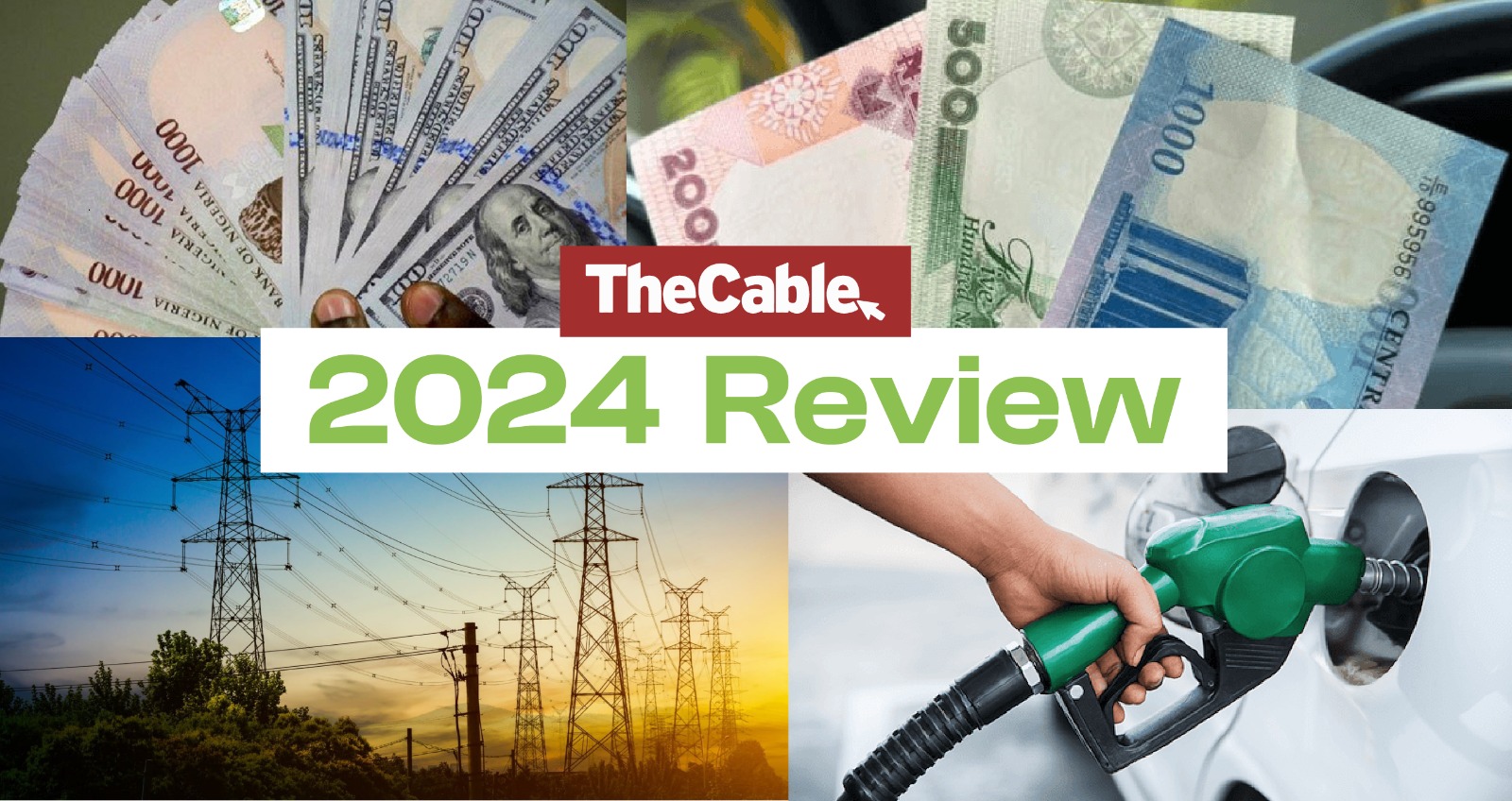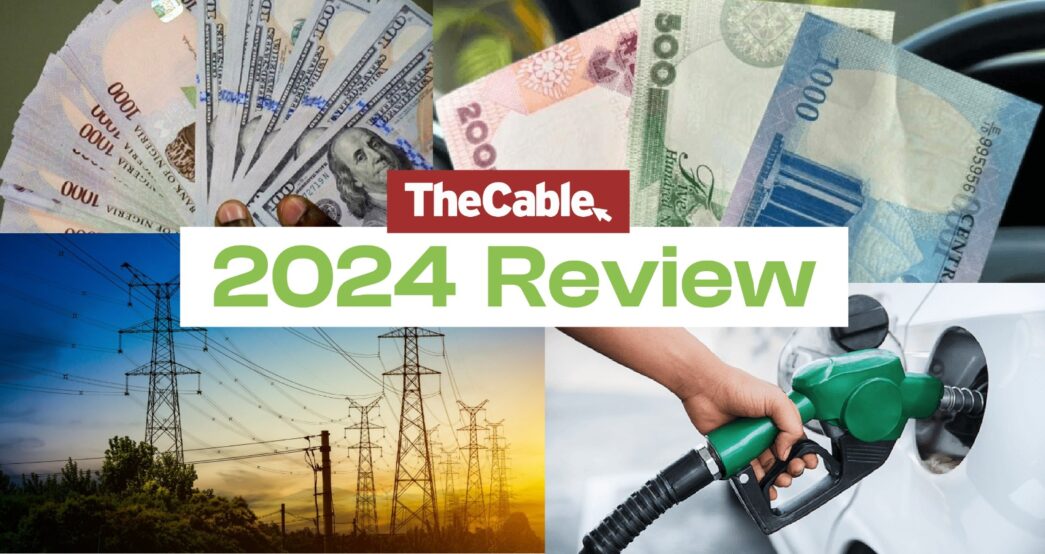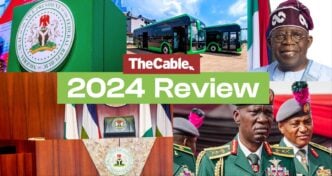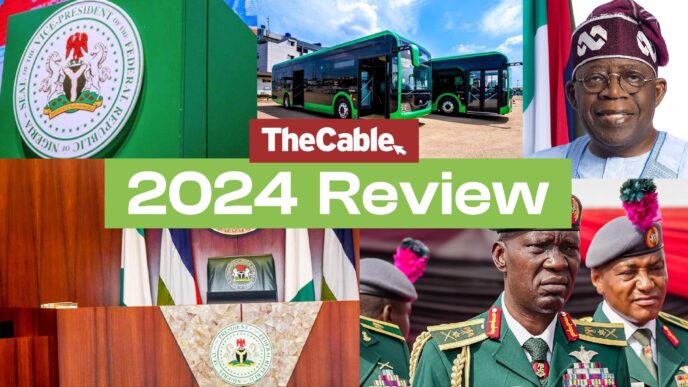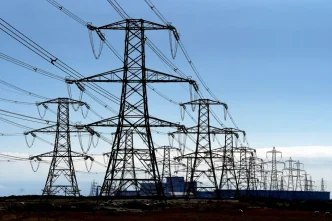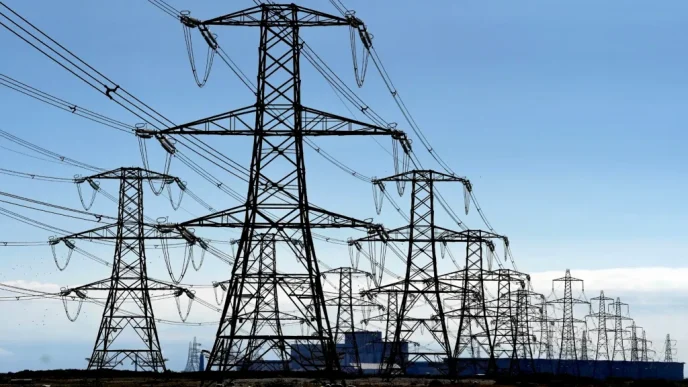SUBSIDY REMOVAL
Advertisement
On September 1, the national oil company admitted to owing the sum of $6 billion to petrol suppliers . Speaking on the issue, Olufemi Soneye, the company’s chief corporate communications officer, said the NNPC was facing a serious financial strain due to the petrol supply costs — a development that affected the company’s ability to sustain PMS supply.
Amid the developments, the NNPC increased the price of the product to N855 per litre at its Lagos filling station on September 3 — inching closer to market pricing.
With subsidy removal now in full swing, the petrol price has increased by 58.6 percent from an average of N668 per litre in January to N1,060 in December. Although the NNPC and oil marketers recently slashed prices to around N900 after ex-depot price fell twice in November and December.
Advertisement
FOREIGN EXCHANGE MARKET UNIFICATION
HIGHER ELECTRICITY TARIFF FOR BAND A
Advertisement
Musliu Oseni, vice-chairman of the Nigerian Electricity Regulatory Commission (NERC), announced on April 3 that Band A customers, who enjoy an average of 20 hours of daily electricity supply, would face a significant tariff hike.
In May, the CBN instructed banks and financial institutions to impose a 0.5 percent levy on electronic transactions to fund national cybersecurity.
The levy was to be paid into the national cybersecurity fund, which was to be managed by the office of the national security adviser (ONSA).
The policy was met with widespread opposition. Following public outcry, Tinubu suspended the levy on May 14 after a federal executive council meeting.
In September, rumours about the levy’s possible reinstatement began circulating, but the CBN denied the reports.
DEREGULATION OF THE DOWNSTREAM SECTOR
Tinubu, in July 2023, approved the establishment of a committee on fiscal policy and tax reforms and appointed Taiwo Oyedele, a tax expert, as chairman.
Four months after its inauguration, the 38-member committee introduced 20 policy recommendations, tagged, ‘quick-wins’, as they were meant to be implemented immediately.
The panel later proposed the economic stabilisation bills (ESBs) comprising four documents: the Nigeria tax bill, the Nigeria tax administration bill, the Nigeria revenue service establishment bill, and the joint revenue board establishment bill.
While the ESBs were approved by the federal executive council (FEC) on September 23, Tinubu had asked the national assembly to consider and pass the four bills.
However, the bills have received stiff opposition from northern elites under the umbrella of the Northern States Governors Forum (NSGF) — with the national economic council (NEC) asking Tinubu to withdraw them for further consultation.
Add a comment
